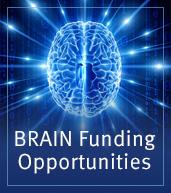
Following the announcement of a Public-Private Partnership Program in early fall, NIH has released two notices of funding opportunities for small business concerns to develop the latest-generation implantable stimulating and/or recording devices for translational and clinical neuroscience research in humans.
A central focus of the BRAIN Initiative is development of technologies for recording and modulating activity in neural circuits. Such technologies may be incorporated into devices to be implanted in the brain or spinal cord that can, for example, treat Parkinson’s disease or restore movement in the case of spinal cord injury.
The NIH BRAIN Initiative launched a Public-Private Partnership Program in early fall of 2015 and released three funding opportunities to support industry partnerships to facilitate early access to neuromodulation and recording devices for human clinical studies. In addition to these three announcements, NIH recently released a pair of Small Business Innovation Research (SBIR) funding opportunities, to broaden the opportunity for small businesses to participate in this program. Both requests for applications use the U44 cooperative agreement mechanism and have a due date of April 26, 2016.
Next-Generation Invasive Devices for Recording and Modulation in the Human Central Nervous System (NS-16-011). This funding opportunity is to encourage small business concerns to pursue translational, non-clinical and clinical studies for recording and/or stimulating devices to treat nervous system disorders, and consequently develop a better understanding of the human brain. Research activities supported through this funding opportunity include implementation of clinical prototype devices, non-clinical safety and efficacy testing, design verification and validation activities, and pursuit of regulatory approval for, and implementation of, a single small clinical study.
Direct to Phase II: Next-Generation Invasive Devices for Recording and Modulation in the Human Central Nervous System (NS-16-018). The purpose of this opportunity is to encourage small business concerns to pursue a small clinical study to obtain critical information necessary to advance recording and/or stimulating devices to treat central nervous system disorders and thereby better understand the human brain (e.g., Early Feasibility Study). Supported clinical studies may include acute or short-term procedures identified as Non-Significant Risk or Significant Risk studies requiring an Investigational Device Exemption, such as chronic implants.
Please visit our Active Funding Opportunities page for more details on these and other opportunities form the NIH BRAIN Initiative.
